Since You Went Away

Brief Synopsis
Cast & Crew
John Cromwell
Claudette Colbert
Jennifer Jones
Joseph Cotten
Shirley Temple
Monty Woolley
Film Details
Technical Specs

Synopsis
On 12 January 1943, Anne Hilton returns home after seeing her husband Tim off to war. Lonely, Anne bitterly questions her husband's decision to leave his family and his lucrative job as an advertising executive in order to serve his country. After comforting her daughters "Brig" and Jane, Anne bids a reluctant farewell to Fidelia, the family's devoted black housekeeper. The loss of Tim's salary has created a financial hardship for the family, and consequently, they can no longer afford to pay Fidelia. When Mr. Mahoney, a sympathetic shopkeeper, extends credit to the Hiltons, Anne pledges Tim's help in finding a job for Johnny, Mahoney's serviceman son, after the war ends. The country is in the grip of a housing shortage, and when Brig, Anne's youngest daugther, insists that it is their patriotic duty to take in a boarder, Anne surrenders her own room. Col. William G. Smollett, a stern retired army officer, answers the Hiltons' ad and rents the room, forcing the family to adjust to his demands. Soon after, Fidelia asks to move back into the house, offering her housekeeping services as rent. Anne warmly welcomes her home, but refuses to accept her offer. Later, at a crowded cocktail lounge, Anne meets her friend, Emily Hawkins, a self-centered divorcee. As the women talk, Anne is surprised by the arrival of Lt. Tony Willett, an old friend of the Hiltons', who worked as an illustrator in civilian life. After escorting Anne out of the bar, Tony asks her for a place to stay, and Anne decides to move in with her daughters to make room for Tony. Jane, a high school senior, soon develops a crush on the suave Tony. One day, Smollett's grandson Bill, an enlisted man, pays a surprise visit to his grandfather, who brusquely dismisses him. Overhearing their exchange, Jane feels compassion for Bill. Emily, meanwhile, contributes to the war effort by organizing a dance to entertain the servicemen, and enlists Jane as one of the hostesses. Nervous and unsure of herself, Jane is asked to dance by Bill. She reluctantly accepts, regarding Bill as only a "boy" next to the dashing Tony. Anne attends with Tony, and there meets Johnny Mahoney, who thanks her for offering to help him find a job. Johnny is leaving for a training flight, and soon after he departs, word comes that his plane has crashed, and for the first time, the tragedy of war is personalized for Anne. As time passes, the irrascible colonel mellows and becomes a member of the family, even accepting the Hiltons' lumbering bull dog Soda. On the day that Tony is to leave, he presents Fidelia with a handsome sketch that he has drawn of her. Jane, who has contracted the mumps, bids Tony a tearful farewell. While bowling one evening, Bill and Jane become friends with a sailor after he bandages Jane's injured finger. After walking the sailor to his bus, Bill invites Jane to the soda fountain, and there Jane questions him about his timidity. In explanation, Bill relates how he bitterly disappointed his grandfather by being expelled from West Point, and then shows her a pocket watch that his grandfather had given him, inscribed with a reference to the Smollett family's proud military history. When Bill concludes that his failure resulted from personal weakness, Jane comes to his defense. The next morning, Jane informs her mother that she wants to find a job after graduation rather than attend college, but Anne refuses. Over breakfast, Jane criticizes the colonel's treatment of Bill, angering the old man. After Jane's graduation ceremony, the family receives word from Tim that he will be stopping between trains at a nearby city. Boarding the next train to the city, the family eagerly anticipates their reunion with Tim. Their train is delayed, however, and by the time they arrive, Tim has already had to leave. On the trip home, the family then meets a woman whose granddaughter was reported missing at the Battle of Corregidor. Touched by the woman's sacrifice, Anne agrees to let Jane work as a nurse's aide that summer. One day soon after, Anne is notified that Tim is missing in action. Devastated by the news, the family prays for his safety, and later, Anne tearfully reviews their scrapbook. [An intermission divides the story at this point.]
One Sunday after church, Bill tells Jane that he has been ordered to leave at midnight. As Jane and Bill spend their last hours together in the countryside, Anne implores Smollett to see Bill off at the train station that evening. Claiming that he has a previous engagement with representatives from the British army, the colonel promises to try to finish in time and asks Anne to wish Bill good luck. Meanwhile, in the country, Jane and Bill seek shelter from a sudden downpour and there dream of marrying after the war ends. At the train station, Anne conveys to Bill his grandfather's concern, and as the train pulls out, Bill presents his watch to Jane as an engagement gift. Too late, the colonel arrives at the station. Some time later, Anne breaks the news of Bill's death in battle to Jane. Filled with self-recrimination, the colonel blames himself for driving the boy too hard, and Anne tries to comfort him. On the colonel's birthday, Tony returns and is surprised by how quickly Jane has grown up. Emily then pays an unexpected visit and voices disapproval of Jane's hospital work, causing Jane to berate her for her selfishness. When Emily criticizes Jane's behavior, Anne castigates her for her lack of patriotism and, realizing that she also has been remiss in serving her country, decides to work as a welder in a shipyard. In the factory, Anne is moved when she meets an immigrant woman who recalls her thrill at reading the inscription on the Statue of Liberty and likens Anne to the embodiment of that spirit. On Christmas Eve, Jane returns Bill's watch to the colonel, bringing the old man pride and comfort. Somberly, Fidelia places the gifts under the tree that Tim sent before his disappearance. Anne tearfully opens her gift, a music box that plays "We'll Be Together Always." As she begins to sob, the phone rings. Upon answering it, Anne's expression turns to joy, and she hurries to the staircase to announce to her daughters that their father is safe and coming home.

Director

John Cromwell
Cast

Claudette Colbert

Jennifer Jones

Joseph Cotten

Shirley Temple

Monty Woolley
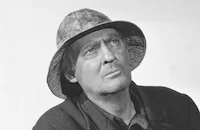
Lionel Barrymore

Robert Walker

Hattie Mcdaniel

Agnes Moorehead

Nazimova

Albert Basserman

Gordon Oliver

Keenan Wynn

Guy Madison

Craig Stevens
Lloyd Corrigan
Jackie Moran
Jane Devlin
Robert Anderson
Charles Williams

Irving Bacon
Leo Mostovoy
Cindy Garner
James Carlisle
George Chandler
John A. James
Mary Anne Durkin
Joyce Horne

Anne Gillis
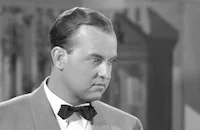
Grady Sutton
Ruth Valmy
Buddy Gorman
Patricia Peters

Andrew Mclaglen

Addison Richards
George Lloyd

Barbara Pepper
Jill Warren

Byron Foulger
Harry Hayden
Edwin Maxwell
Russell Hoyt
Loudie Claar
Don Najarian
Jon Najarian

Helen Koford

Florence Bates
Conrad Binyon
Theodore Von Eltz
Adeline Dewalt Reynolds
Christopher Adams
Jimmy Dodd
Martha Outlaw
Verna Knopf
Robert Cherry
Kirk Barron
Earl Jacobs
Cecil Ballerino
Jack Gardner
Doodles Weaver
Paul Esburg
Richard C. Wood
Ralph Reed

James Westerfield

Warren Hymer
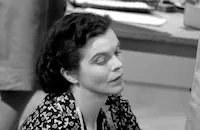
Dorothy Adams
Willard Jillson
Dorothy Mann
Peggy Maley
Robert Johnson

Dorothy Dandridge
Shelby Bacon
Eddie Hall
Warren Burr
Lela Bliss
Eilene Janssen
Harlan Miller
Mrs. Ray Feldman
Neyle Marx
Johnny Bond

Ruth Roman
Betsy Howard
Stephen Wayne

William B. Davidson
Tom Dawson
Marilyn Hare

Jonathan Hale
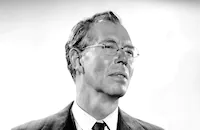
Walter Baldwin
Eric Sinclair
Jerry Revell
James Clemons Jr.
Dick Whittington, A Dog

Neil Hamilton

John Derek
Florence Allen
Lulu Mae Bohrman
Dulcie Day
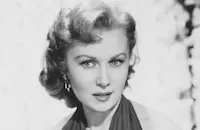
Rhonda Fleming
Aileen Pringle
Wallis Clark
Neila Hart
Crew
Fred Ahern
Robert Ashton
George Barnes
Jack Beaman
Lew Brown
Robert Bruce
John E. Burch
Ruth Burch
Eddie Cline
Larry Clinton
William Connor
Stanley Cortez
Jack Cosgrove
Marty Crail
Arden Cripe
B. G. Desylva
Andre Detoth
Tom Douglas
Elmer Ellsworth
Lowell J. Farrell
John D. Faure
Arthur Fellows
Harold Fenton
Edward P. Fitzgerald
Louis Forbes
James A. Forney
Charles L. Freeman
Victor A. Gangelin
Lee Garmes
Tay Garnett
Sarah Catherine Haney
Ray Henderson
Wayland M. Hendry
Peggy Higgins
Arthur Johns
J. Mcmillan Johnson
Richard L. Johnston
Barbara Keon
Hal C. Kern
Mark-lee Kirk
Raymond A. Klune
Margaret Martin
Roy A. Mclaughlin
Kenneth Meade
Percy Montrose
Edward Mull
James E. Newcom
A. Joan O'brien
William L. Pereira
Frank Pereu
James Potevin
William Riddle
Frederick Robinson
Morris Rosen
Adele Sadler
Lydia Schiller
David O. Selznick
David O. Selznick
David O. Selznick
Clarence Slifer
Harvey L. Slocomb
Max Steiner
Robert Stephanoff
Johann Strauss Ii
Iris Taylor
Lt. Col. J. G. Taylor U.s. Army
A. Leslie Thomas
Percy Townsend
Charles Walters
Harry Webb
Fred Widdowson
Margaret Buell Wilder
Alfred Ybarra
George Yohalem

Photo Collections
Videos
Movie Clip






Film Details
Technical Specs

Award Wins
Best Score
Award Nominations
Best Actress
Best Art Direction
Best Cinematography
Best Editing
Best Picture
Best Special Effects
Best Supporting Actor
Best Supporting Actress
Articles
Since You Went Away
Selznick was looking for a project to follow his two-in-a-row Best Picture Oscars® for Gone With the Wind and Rebecca (1940) when he came across Margaret Buell Wilder's novel, a series of letters written by a wife to her husband off serving in the war. He brought Wilder to Hollywood to write the screenplay, then sent her home when he decided he could do it better himself, leading her to appeal unsuccessfully to the Writer's Guild for credit. On his own, Selznick had turned her series of incidents, in which the wife was the only fully defined character, into a contemporary version of a Dickens novel, filled with compelling characters and incidents that re-created the day-to-day life of a family keeping the home fires burning.
Stage star Katharine Cornell, who had only previously appeared on screen as herself in Stage Door Canteen (1943), campaigned for the leading role, but Selznick tactfully advised her that some of the day-to-day details might seem too mundane for an actress of her stature. Instead, he chose Claudette Colbert, a proven fan favorite who wasn't afraid to play her own age (38) as the mother of a 16-year-old. To add to the film's box-office appeal and importance, he set out to assemble an all-name cast, calling it the strongest since his own Dinner at Eight in 1933. In addition to his own contract players Joseph Cotten (as Colbert's lifelong admirer) and Shirley Temple (as her younger daughter), he cast Monty Woolley as a boarder they take in, Agnes Moorehead as Colbert's catty friend, Lionel Barrymore as a minister and Hattie McDaniel as the family maid. He even found room for another stage legend, Russian diva Nazimova, who played a factory worker. In small roles, he cast two of his younger contract players, Guy Madison, in his film debut, and Rhonda Fleming. Former silent screen heartthrob Neil Hamilton (later Commissioner Gordon on the TV series Batman) filmed scenes as Colbert's husband, but eventually they were cut, so that all that remained of him were photographs.
For the older daughter, who loses her first love to the war, he cast his protegee Jennifer Jones. She had just played her first important part on loan to 20th Century-Fox for The Song of Bernadette (1943), and Selznick wanted her to follow that spiritual role with a more down-to-earth character. Thinking it would be good publicity, he cast Jones' husband, Robert Walker, as the serviceman she loves and loses. But though they worked together well on-screen, offscreen it caused major problems. Selznick had been infatuated with Jones since he'd discovered her two years earlier during a New York talent search. For a while, they stayed on opposite coasts, as he kept her in New York to continue her acting lessons. When she came west for The Song of Bernadette, however, they started getting closer. He moved from mentor to lover during the filming of Since You Went Away. At the same time, she and Walker decided to separate, though they kept it out of the press for fear of tarnishing her image as St. Bernadette. By the time they shot their big love scenes, he had already moved out of their home. They didn't announce their divorce until the day after Jones won the Oscar® for The Song of Bernadette. Selznick would try to keep his own marriage together until 1947.
Selznick hadn't started on the screenplay until August 1943, a month before shooting was due to start. For a while he even considered directing the film himself, but his advisors convinced him that he would be over-extending himself, so he hired John Cromwell; the latter was an expert at directing women who had worked for Selznick on The Prisoner of Zenda (1937) and In Name Only (1939). Still, everybody knew that Selznick was the real power on the picture. For the first time, he insisted that no scene be shot until he had seen it rehearsed. Of course, that kept him busy when he could have been writing. As a result, he was finishing scenes barely in time to film them. And as he wrote, he added more characters and incidents so that the cast was never exactly sure what the plot was. He also took the opportunity to build Jones' role into a miniature showpiece, though he never took the focus entirely from Colbert. Selznick's meticulous attention to detail -- which included using his son's baby shoes as part of the set dressing and handwriting notes from the absent husband -- extended shooting to an amazing five months.
What emerged was an epic soap opera (almost three hours in length) that hit home for wartime audiences to the tune of more than $7 million at the box office on a cost of $3.257 million. The film scored nine Oscar® nominations -- including Best Picture, Best Actress (Colbert), Best Supporting Actress (Jones) and Best Supporting Actor (Woolley) -- but only won for Max Steiner's score. This was a disappointment for Selznick, who had hoped it would be the highest-grossing film released since Gone With the Wind. But he could take consolation in the quality on screen and a particularly glowing personal notice from writer and frequent collaborator Ben Hecht: "The film rings out like a song of America. It's a panorama with a heartbreak that will reach the theaters. You have wrangled on to the screen the amiable and indestructible face of democracy." (In Showman: The Life of David O. Selznick by David Thomson, New York: Alfred A. Knopf, 1992).
Producer: David O. Selznick
Director: John Cromwell
Screenplay: David O. Selznick
Based on the novel by Margaret Buell Wilder
Cinematography: Stanley Cortez, Lee Garmes
Art Direction: William L. Pereira
Music: Max Steiner
Principal Cast: Claudette Colbert (Anne Hilton), Jennifer Jones (Jane Hilton), Joseph Cotten (Anthony Willett), Shirley Temple (Bridget "Brig" Hilton), Monty Woolley (Colonel Smollett), Lionel Barrymore (The Clergyman), Robert Walker (William G. Smollett II), Hattie McDaniel (Fidelia), Agnes Moorehead (Emily Hawkins), Guy Madison (Harold Smith), Keenan Wynn (Lt. Solomon), Nazimova (Zosia Koslowska), Dorothy Dandridge (Officer's Wife), Florence Bates (Dowager), Doodles Weaver (Convalescent), Albert Basserman (Dr. Sigmund Gottlieb Golden), Craig Stevens (Danny Williams), Ruth Roman (Envious Girl), Rhonda Fleming (Girl at Dance), John Derek (Extra), Neil Hamilton (Tim Hilton-Photograph).
BW-177m. Closed captioning.
by Frank Miller

Since You Went Away
Quotes
Trivia
John Hamilton filmed a few scenes as Tim Hilton, the husband of Claudette Colbert's character. The footage was not used in the final cut, but Hamilton can be seen in an uncredited photograph.
Notes
Before the onscreen production credits appear, the title Since You Went Away, followed by the word "overture" is flashed onscreen while orchestral music plays under the title. Following the overture, the screen then goes black, after which the Selznick logo is projected. The logo is followed by the legend "David O. Selznick presents his production of Since You Went Away". The onscreen writing credits: "based on the adaptation of her book by Margaret Buell Wilder," with "screenplay by the producer," although Selznick's name is not listed onscreen as the writer. The film opens with the following written prologue: "This is a story of the Unconquerable Fortress: the American Home..." An intermission divides the picture just after "Anne" is notified that her husband is missing in action. According to a modern source, Selznick began his search for a home-front drama in June 1942. Production materials on the film contained in the AMPAS Library reveal that Selznick settled on Wilder's book, which was largely a reprint of a column that she wrote for the Dayton Journal Herald. The column was written in story form as a series of letters from the writer to her husband. Portions of Wilder's book were also published in the June 1943 Ladies Home Journal. A modern source adds that after buying the story rights for $30,000, Selznick brought Wilder in to write the adaptation. After Wilder finished her adaptation, Selznick, thinking that the characters were too sketchy, took the basic structure and wrote the screenplay himself, focusing on the three principal characters of the Hilton family to create a "panorama of the home front." Selznick had originally planned to credit the screenplay to Jeffrey Daniel, a nom de plume, but later changed his mind, according to a 1944 Los Angeles Times news item. According to an August 1943 Hollywood Reporter news item, Selznick initially planned to direct the production. To lend an air of authenticity to his drama, Selznick used five different units to film background shots of hospitalized soldiers, laborers at the Kaiser Shipyards in Richmond, CA, and Red Cross workers, according to a New York Herald Tribune news item. A January 1944 Hollywood Reporter news item adds that Selznick hired twenty female steelburners and nine tons of welding tools from the Wilmington Shipyard in order to lend verisimilitude to the shipyard scene. In the film's printed program, Selznick acknowledged the "technical assistance rendered by Dr. Walter L. Treadway, Medical Director of U. S. Public Health Service; Mr. Ulrie Bell and Mr. William S. Cunningham of the OWI; Commander Alfred J. Bolton U. S. Navy; Mr. Allyn Butterfield of the War Dept.; Mr. Jack Beaman, liaison officer for the American Red Cross and May E. Romm, M. D. News items in Hollywood Reporter yield the following information about the production: Although George Barnes is credited with photography in the September 1943 production charts, he is not credited onscreen. According to modern sources, Selznick fired Barnes after two weeks of work because he was dissatisfied with the way Claudette Colbert was being photographed. In late November 1943, Tay Garnett was borrowed from M-G-M to direct Robert Walker's scenes, and Lee Garmes was hired to photograph them. Director Andre De Toth worked on special montage scenes between 8 December-December 22, 1943. When director John Cromwell fell ill, Selznick took over the directorial reigns from 23-26 December 1943. The sequence at the railroad depot was filmed at the Pathé lot on a site that once served as the rolling lawn of Tara in Gone With the Wind. The hangar dance was shot in a reproduction of an Army aviation hangar that encompassed two sound stages, over 20,000 square feet of floor space and utilized 100 electricians. The church scene was filmed at the Church of the Angels in Pasadena, CA. After its initial editing in February 1944, the film ran four and a half hours long. By early March 1944, Selznick had trimmed the picture to three hours twenty-eight minutes. According to a March 21, 1944 news item, by late March Selznick had cut the film to three hours, ten minutes. After its intitial engagement, Selznick trimmed the film by another twenty-five minutes, according to a modern source. By the time the 127-day shoot was completed, the film had amassed a budget of nearly $3,000,000, according to a July 1944 news item. A Variety 1949 news item adds that when the film was re-released by Eagle Lion in 1949, it was cut another thirty-seven minutes. According to a memo from Selznick reprinted in a modern source, stage actress Katharine Cornell wanted to play the role of "Anne," but Selznick desired a bigger star. In addition to Cornell, Ann Harding, Irene Dunne, Helen Hayes and Rosalind Russell were also considered for the role, according to Hollywood Reporter news items. An October 1944 Los Angeles Times news item adds that Colbert, when approached about playing the part of "Anne," was at first reluctant because she didn't want to play the mother of two adolescent daughters. Shirley Temple returned to the screen after a two-year absence to play the role of "Brig". Although a September 17, 1943 production chart places Vicci Style in the cast, Styles' appearance in the completed film has not been confirmed. According to a modern source, Selznick offered Ruth Gordon the role of "Emily," but she turned it down. Hollywood Reporter news items add the following actors to the cast: George Beban, Jr.; Rudolph Friml, Jr.; Michael Owen; Phyllis Adair; Clyde Fillmore; Charles Halton; Sam McDaniel; Virginia Wicks; Charles King, Jr.; William Bronson; Wing Foo; Minta Durfee Arbuckle; Eva Novak; Matt Moore; Jill Browning; Buddy Yarus; Harlan Briggs; Carlyle Blackwell, Jr. and Grady Thomas. None of these actors could be identified in the viewed print and their appearance in the completed film has not been confirmed. This picture marked the screen debut of John Derek, Guy Madison and Wilfred Jillson and the last film appearance of Nazimova. Although actor Neil Hamilton was not in the film, he was featured as "Tim" in several still photographs that were displayed throughout the picture. Robert Walker, who was borrowed from M-G-M to appear in this film, had recently separated from his wife Jennifer Jones, who played his sweetheart in the film. Jones and Selznick were later married. Since You Went Away was named as the fourth most popular of the year by the National Board of Review. Post-release Hollywood Reporter news items note that the lines at the film's New York opening were so long that the police ordered that the theater must open an hour-and-a-half before show time to prevent traffic jams. The film was nominated for an Academy Award for Best Picture. Claudette Colbert was nominated for Best Actress, Monty Woolley was nominated for Best Supporting Actor and Jennifer Jones was nominated for Best Supporting Actress. The picture was also nominated for Academy Awards in the following categories: Best Cinematography, Best Film Editing, Best Special Effects and Best Art Direction-Interior Decoration. Max Steiner won an Academy Award for his scoring of the film.














